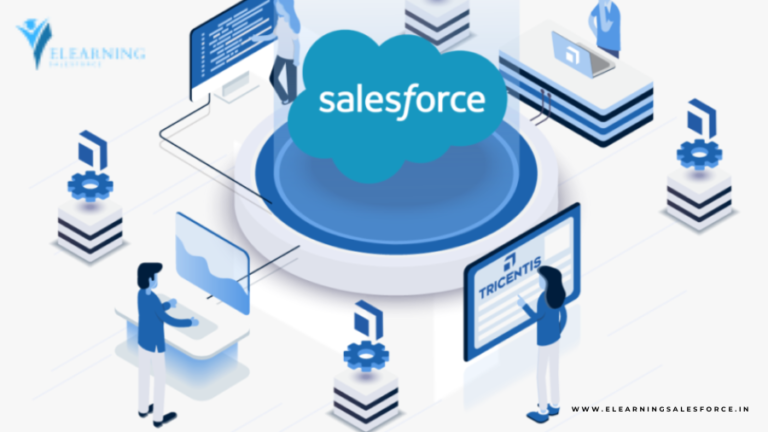Salesforce Development: Navigating the Path to Success
In the ever-evolving landscape of technology, Salesforce has emerged not just as a CRM platform but as a robust ecosystem that empowers businesses to create custom solutions. Salesforce Development plays a pivotal role in harnessing the full potential of this platform.
The Evolution of Salesforce
Salesforce’s Journey in the Tech Landscape
From its inception as a cloud-based CRM platform, Salesforce has evolved into a comprehensive ecosystem that encompasses sales, service, marketing, and more. Its cloud-centric approach has revolutionized how businesses operate.
Impact on Businesses and Developers
Salesforce has not only transformed how businesses manage customer relationships but has also created a thriving space for developers. The platform’s flexibility and scalability have opened doors for innovative solutions tailored to unique business needs.
Understanding Salesforce Development
What Sets Salesforce Development Apart
Salesforce Development stands out due to its declarative approach, allowing developers to create applications with minimal code. This democratization of development has expanded the developer community and accelerated the pace of innovation.
Core Components and Tools
Salesforce Development involves working with core components such as Apex (Salesforce’s programming language), Visualforce Pages, and Lightning Components. These tools enable developers to create seamless and visually appealing applications.
The Role of a Salesforce Developer
Responsibilities and Skill Set
A Salesforce Developer’s role encompasses designing, coding, testing, and implementing solutions within the Salesforce ecosystem. Besides technical skills, effective communication and problem-solving abilities are crucial.
Career Growth Opportunities
The demand for skilled Salesforce Developers is on the rise. As businesses increasingly rely on Salesforce, developers have ample opportunities for career growth, from specializing in certain modules to taking on leadership roles.
Key Concepts in Salesforce Development
Apex Programming Language
Apex is at the heart of Salesforce Development. It is a powerful, object-oriented language that allows developers to add business logic to Salesforce applications, from simple triggers to complex algorithms.
Visualforce Pages and Lightning Components
Visualforce enables the creation of custom user interfaces, while Lightning Components provide a modern and responsive framework for building dynamic applications. These components enhance the user experience on both desktop and mobile devices.
Developing Custom Salesforce Solutions
Tailoring Salesforce to Business Needs
One of the strengths of Salesforce Development is its ability to be customized to meet specific business requirements. Developers can create custom objects, fields, and workflows to ensure that Salesforce aligns perfectly with the unique needs of each organization.
Best Practices in Custom Development
Following best practices, such as proper code versioning and documentation, is essential in Salesforce Development. Adhering to these practices ensures maintainability, scalability, and collaboration within development teams.
Integration and Data Management
Salesforce Integration Strategies
Salesforce often operates as part of a larger tech ecosystem. Effective integration strategies, whether through APIs or middleware, are crucial for seamless data flow between Salesforce and other systems.
Ensuring Data Accuracy and Security
Given the critical nature of data in Salesforce, developers must implement robust data management practices. This includes data validation rules, data integrity checks, and ensuring compliance with data security standards.
Staying Ahead with Trailhead
The Trailhead Learning Platform
Trailhead, Salesforce’s free online learning platform, provides a vast array of modules and projects for developers. It’s not just a resource for beginners but a continuous learning tool for developers at all levels.
Continuous Learning for Salesforce Developers
The Salesforce ecosystem evolves rapidly, with new features and updates. Continuous learning is not just encouraged but necessary for developers to stay abreast of the latest tools, best practices, and emerging trends.
Challenges in Salesforce Development
Common Hurdles Faced by Developers
Developers may encounter challenges, such as meeting tight deadlines, handling complex data models, or addressing performance issues. Recognizing these challenges is the first step toward overcoming them.
Strategies for Overcoming Challenges
Effective collaboration, ongoing training, and leveraging community resources are strategies that can help developers overcome challenges. Salesforce’s robust support and documentation also play a crucial role.
Salesforce Development Community
The Power of Community Collaboration
The Salesforce Developer Community is known for its collaborative spirit. Developers from around the world share insights, troubleshoot issues, and contribute to the collective knowledge, fostering a sense of belonging.
Networking and Knowledge Sharing
Engaging with the community through events, forums, and social media not only expands professional networks but also opens avenues for knowledge sharing. The diversity of perspectives within the community is a valuable resource.
Navigating the AppExchange
Exploring App Development Opportunities
Salesforce’s AppExchange is a marketplace for third-party applications. Developers can explore opportunities to create and publish apps, reaching a broader audience and potentially generating revenue.
Publishing and Marketing on AppExchange
For developers looking to showcase their solutions, understanding how to effectively market and publish on AppExchange is crucial. A well-marketed app can gain visibility and attract users.
Salesforce DX: A Developer’s Toolbox
Introduction to Salesforce Developer Experience
Salesforce DX (Developer Experience) is a set of tools and features that streamline the entire development life cycle. It includes version control, continuous integration, and enhanced collaboration.
Streamlining Development Processes
Salesforce DX simplifies development processes, enabling teams to work more efficiently. It promotes collaboration, ensures code quality, and facilitates seamless deployment across different environments.
Real-world Success Stories
Case Studies of Successful Salesforce Implementations
Examining real-world success stories provides insights into the diverse applications of Salesforce Development across industries. These case studies highlight the positive impact on businesses and end-users.
Positive Outcomes for Businesses and Developers
Businesses that invest in Salesforce Development often experience increased efficiency, improved customer satisfaction, and a competitive edge. For developers, success stories underscore the tangible impact their work can have.
Q&A Session: Common Questions About Salesforce Development
Is Salesforce Development Suitable for Beginners?
Salesforce’s declarative approach makes it beginner-friendly, allowing those with minimal coding experience to start developing solutions.
How Does Salesforce Support Continuous Integration?
Salesforce provides tools like Salesforce DX and supports integration with popular CI/CD tools, ensuring a streamlined and automated development process.
What Opportunities Does Salesforce Development Offer for Freelancers?
Freelancers can find ample opportunities in Salesforce Development, taking on projects ranging from customization to app development for businesses of all sizes.
Are Certifications Important for Salesforce Developers?
While not mandatory, certifications validate a developer’s skills and can enhance credibility, opening up more opportunities for career growth.
How Does Salesforce Adapt to Emerging Technologies?
Salesforce actively integrates emerging technologies like AI and blockchain into its ecosystem, providing developers with opportunities to explore and implement cutting-edge solutions.
Conclusion
In conclusion, Salesforce Development is not just about coding; it’s a journey of continuous learning, collaboration, and innovation. Whether you’re a seasoned developer or just starting, the Salesforce ecosystem offers a vast landscape of opportunities.
FAQs
- Is Salesforce Development suitable for someone with no coding experience? Yes, Salesforce’s declarative approach makes it accessible for beginners with minimal coding experience.
- How does Salesforce support continuous integration for developers? Salesforce provides tools like Salesforce DX and supports integration with popular CI/CD tools, ensuring a streamlined development process.
- What opportunities does Salesforce Development offer for freelancers? Freelancers can find diverse opportunities in Salesforce Development, from customization projects to app development for businesses of all sizes.
- Are certifications important for Salesforce Developers? While not mandatory, certifications validate a developer’s skills and enhance credibility, opening up more opportunities for career growth.
- How does Salesforce stay updated with emerging technologies? Salesforce actively integrates emerging technologies like AI and blockchain into its ecosystem, providing developers with opportunities to explore and implement cutting-edge solutions.



